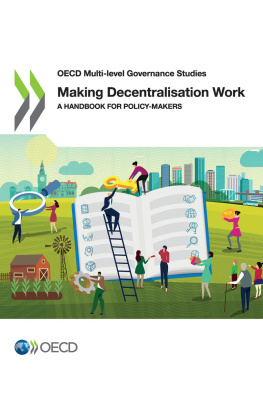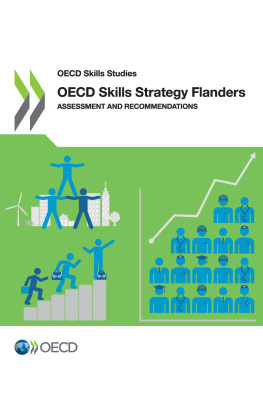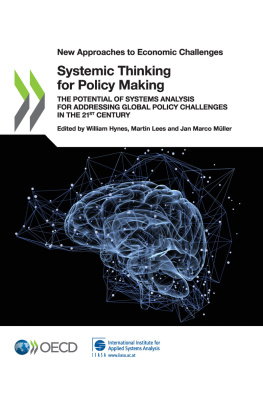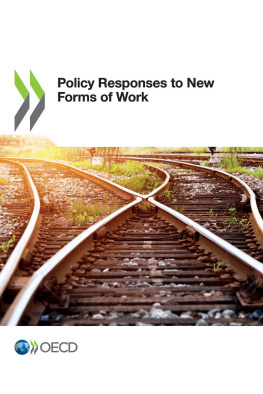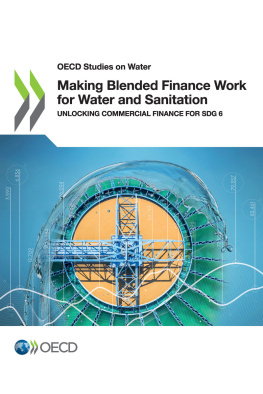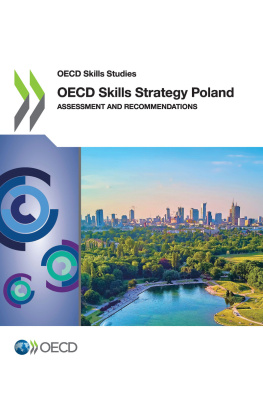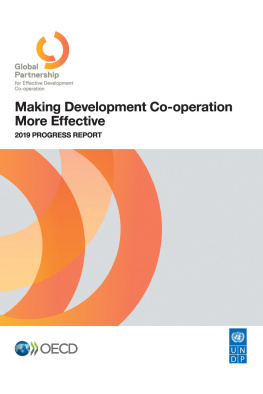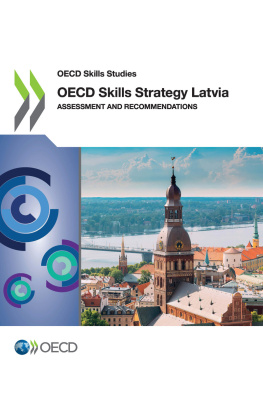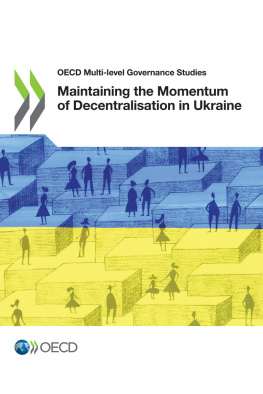OECD - Making Decentralisation Work
Here you can read online OECD - Making Decentralisation Work full text of the book (entire story) in english for free. Download pdf and epub, get meaning, cover and reviews about this ebook. year: 2019, publisher: OECD Publishing, genre: Politics. Description of the work, (preface) as well as reviews are available. Best literature library LitArk.com created for fans of good reading and offers a wide selection of genres:
Romance novel
Science fiction
Adventure
Detective
Science
History
Home and family
Prose
Art
Politics
Computer
Non-fiction
Religion
Business
Children
Humor
Choose a favorite category and find really read worthwhile books. Enjoy immersion in the world of imagination, feel the emotions of the characters or learn something new for yourself, make an fascinating discovery.
Making Decentralisation Work: summary, description and annotation
We offer to read an annotation, description, summary or preface (depends on what the author of the book "Making Decentralisation Work" wrote himself). If you haven't found the necessary information about the book — write in the comments, we will try to find it.
OECD: author's other books
Who wrote Making Decentralisation Work? Find out the surname, the name of the author of the book and a list of all author's works by series.
Making Decentralisation Work — read online for free the complete book (whole text) full work
Below is the text of the book, divided by pages. System saving the place of the last page read, allows you to conveniently read the book "Making Decentralisation Work" online for free, without having to search again every time where you left off. Put a bookmark, and you can go to the page where you finished reading at any time.
Font size:
Interval:
Bookmark:
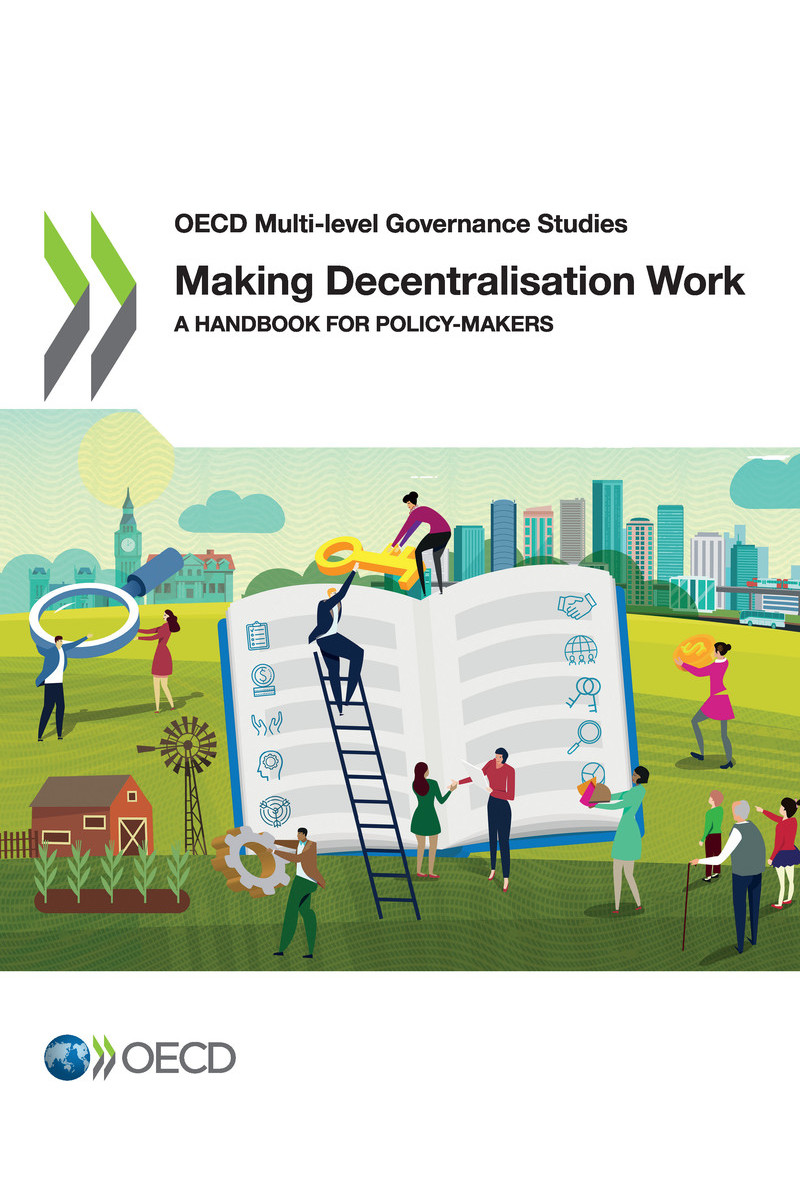
OECD (2019), Making Decentralisation Work: A Handbook for Policy-Makers , OECD Multi-level Governance Studies, OECD Publishing, Paris.
https://doi.org/10.1787/g2g9faa7-en
Decentralisation is among the most important reforms of the past 50 years. Implemented to varying degrees in a majority of developed and developing countries around the world, decentralisation has profound implications due to its complex and systemic nature. Engaging in a decentralisation process affects all spheres of society, from the nature and the quality of governance, to a national wealth and economic growth and, more broadly, to citizen well-being.
The 2019 OECD report Making Decentralisation Work: a Handbook for Policy-Makers provides one of the most comprehensive overviews on the current trends in the decentralisation policies of OECD countries and beyond, and on the ways to make decentralisation work. It argues that the question should not be whether decentralisation is good or bad in itself, but that decentralisation outcomes in terms of democracy, efficiency, accountability, regional and local development depend greatly on the way decentralisation is designed and implemented.
The report argues that decentralisation should not be considered a panacea for any problem a country may face, nor should it be seen as an objective in and of itself. Rather it is a means to achieve certain goals. Empirical research and a number of country examples show that decentralisation can be conducive to public sector efficiency, democratisation and political stability. There are also examples of failures with decentralisation, when the reforms were not properly designed and implemented, and where the multi-faceted dimension of the process was not well understood.
The report identifies 10 guidelines for decentralisation to work and be conducive to regional and local development. Beyond the guidelines, the report proposes concrete tools for policy-makers, including detailed sets of recommendations, checklists, pitfalls to avoid and examples of good practices, both in unitary and federal countries.
The report is part of the OECD Multi-Level Governance Studies series. It was conducted by the OECD Centre for Entrepreneurship, SMEs, Regions and Cities (CFE), under the leadership of the Regional Development Policy Committee. It was discussed at the 40th RDPC meeting on 8 November 2018 and approved on 22 February 2019 by written approval procedure under the reference [CFE/RDPC(2018)17/REV1]. It was also discussed in the 14th annual meeting of the OECD Network on Fiscal Relations across Levels of Government on 20 November 2018.
This report was produced by the OECD Centre for Entrepreneurship, SMEs, Regions and Cities (CFE) led by Lamia Kamal-Chaoui, Director. It is part of the multi-level governance Programme of Work of the OECDs Regional Development Policy Committee.
The report was written by Dorothe Allain-Dupr, Isabelle Chatry and Antti Moisio from the OECD Secretariat, Decentralisation, Public Investment and Subnational Finance Unit in CFE. The report includes inputs from Varinia Michalun as well as comments by Rudiger Ahrend, Joaquim Oliveira Martins, Yingyin Wu, Isidora Zapata, from the OECD Secretariat.
The report also includes substantial contributions from Anwar Shah, expert in public economics and governance, Brookings Institution, Washington, DC (for chapter 5), as well as Arjan Schackel, Associate Director of the Bachelor European Studies (Maastricht University, Netherlands), Andreas Ladner, professor at the university of Lausanne and Nicolas Keuffer, senior researcher at the university of Lausanne (for Chapter 3).
The report was co-ordinated and supervised by Dorothe Allain-Dupr, Head of Unit, Decentralisation, Public Investment and Subnational Finance. This unit is in the Economic Analysis, Statistics and Multi-level Governance Section, led by Rudiger Ahrend, in CFE.
The authors gratefully acknowledge the comments and input received from the Delegates of the OECD Regional Development Policy Committee throughout the process. Comments received from the OECD Network on Fiscal Relations across Levels of Government are also gratefully acknowledged.
Thanks are also due to Eleonore Morena for editing and formatting the manuscript and to Pilar Philip who prepared the final publication.
Decentralisation is among the most important reforms of the past 50 years. This report argues that the question should not be whether decentralisation is good or bad in itself, but that decentralisation outcomes in terms of democracy, efficiency, accountability, regional and local development depend greatly on the way decentralisation is designed and implemented.
Making the most of decentralisation for regional development is particularly crucial in the current context of a geography of discontent characterised by growing divides between places that feel left behind by globalisation and technological change and those that may benefit from the opportunities offered by megatrends. Dysfunctional decentralisation systems are part of the story behind the crisis that some democracies are facing: it is thus critical to find ways to make decentralisation systems work more effectively.
Decentralisation refers to the transfer of powers and responsibilities from the central government level to elected authorities at the subnational level (regional governments, municipalities, etc.) and that have some degree of autonomy. Decentralisation covers three distinct but interrelated dimensions: political, administrative and fiscal. There has been a path towards decentralisation in a majority of OECD countries over the past decades. In two thirds of OECD countries, decentralisation processes have resulted in an increase of economic importance of subnational government, measured both as a spending share of GDP and share of total public spending between 1995 and 2016.
Font size:
Interval:
Bookmark:
Similar books «Making Decentralisation Work»
Look at similar books to Making Decentralisation Work. We have selected literature similar in name and meaning in the hope of providing readers with more options to find new, interesting, not yet read works.
Discussion, reviews of the book Making Decentralisation Work and just readers' own opinions. Leave your comments, write what you think about the work, its meaning or the main characters. Specify what exactly you liked and what you didn't like, and why you think so.

